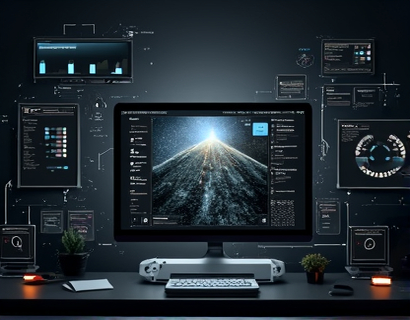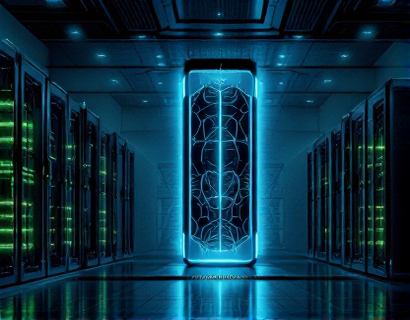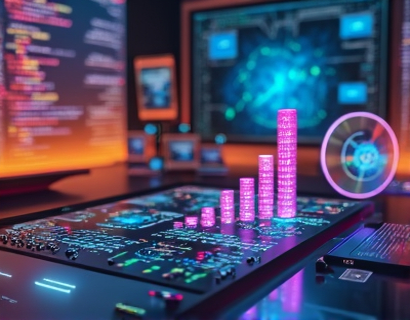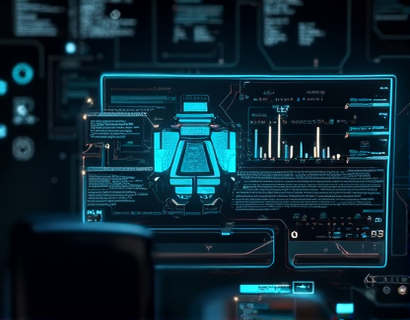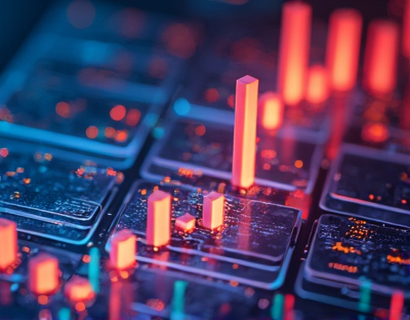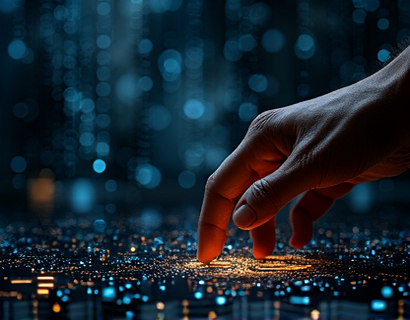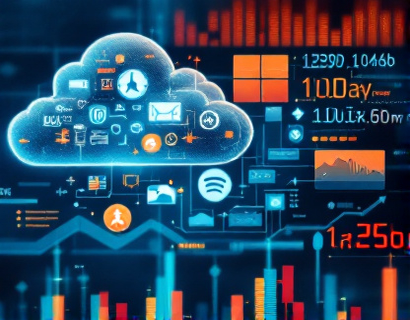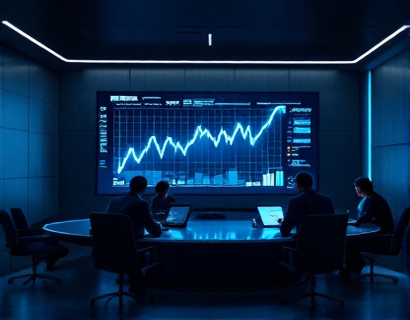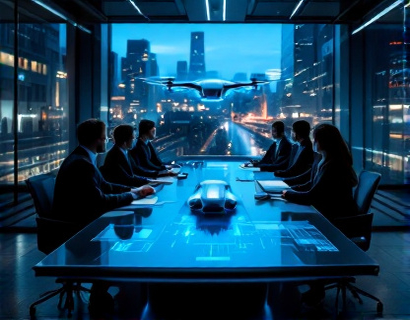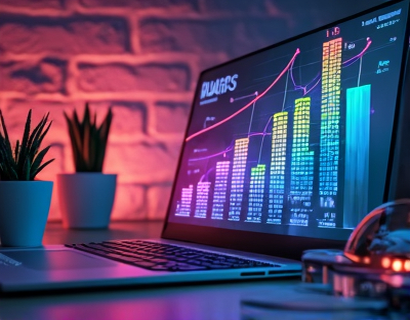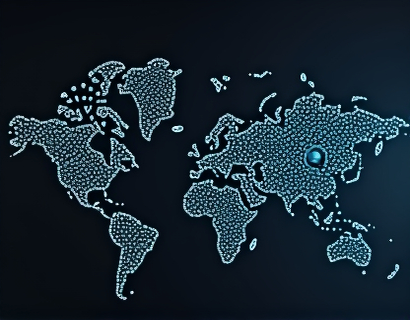Decentralized AI and Crypto: Transforming Digital Experiences for the Ucosystem Era
The convergence of decentralized technologies and artificial intelligence is ushering in a new era of digital innovation, often referred to as the Ucosystem. This era is characterized by the integration of blockchain, AI, and decentralized applications (dApps) to create more secure, transparent, and user-centric digital experiences. The fusion of these technologies is not just a technological advancement but a paradigm shift that is redefining how we interact with digital platforms and services.
The Ucosystem represents a decentralized network where users have greater control over their data and digital identities. This shift is driven by the need for privacy, security, and autonomy in an increasingly digital world. Decentralized AI, a key component of this ecosystem, leverages the power of AI algorithms while maintaining the decentralized principles of blockchain technology. This combination promises to unlock new potentials in data processing, machine learning, and user engagement.
Understanding Decentralized AI
Decentralized AI, or dAI, is an approach to artificial intelligence that operates on a decentralized network, typically a blockchain. Unlike traditional AI, which relies on centralized servers and databases, dAI distributes computing power and data across a network of nodes. This distribution enhances security, reduces the risk of single points of failure, and promotes transparency in data handling and algorithm decision-making.
The core idea behind decentralized AI is to harness the collective computing power of a decentralized network to perform complex tasks. This approach not only improves the efficiency and scalability of AI applications but also ensures that the data and models used are tamper-proof and verifiable. By removing the central authority, dAI reduces the risk of data breaches and manipulation, making it an attractive solution for industries that handle sensitive information.
Cryptocurrency and Decentralized AI
Cryptocurrency plays a pivotal role in the Ucosystem by providing a medium of exchange and incentivization for decentralized AI applications. Blockchain technology ensures that transactions are secure, transparent, and immutable, which is crucial for building trust in dAI systems. Smart contracts, self-executing contracts with the terms directly written into code, further automate and enforce the rules of these applications, reducing the need for intermediaries.
The integration of cryptocurrency in dAI also facilitates micro-payments and reward systems, encouraging participation and contribution to the network. For instance, users can be rewarded with tokens for providing computational resources, validating transactions, or contributing to the development of AI models. This token-based economy creates a sustainable and community-driven model for dAI applications.
Enhancing User Engagement through Decentralized AI
One of the most significant impacts of decentralized AI is the enhancement of user engagement. Traditional AI applications often suffer from issues such as data privacy concerns, lack of transparency, and centralized control, which can lead to user distrust and disengagement. Decentralized AI addresses these issues by giving users more control over their data and providing a transparent view of how their data is used.
dApps powered by decentralized AI can offer personalized experiences without compromising user privacy. For example, a decentralized recommendation system can analyze user preferences and behavior data stored on a user-controlled blockchain, providing tailored suggestions while keeping the data secure. This approach not only improves user satisfaction but also builds trust in the platform.
Moreover, decentralized AI can foster a sense of community and collaboration. Users can participate in the development and improvement of AI models by contributing data, computational power, or even by voting on the direction of the application. This participatory model not only enhances user engagement but also ensures that the AI systems are aligned with the needs and values of the community.
Innovative Tech Solutions in the Ucosystem
The Ucosystem is home to a variety of innovative tech solutions that leverage the strengths of both decentralized technologies and AI. One such solution is decentralized machine learning (ML) platforms, which allow developers to build and deploy AI models on a distributed network. These platforms use techniques like federated learning, where models are trained across multiple decentralized devices or servers, without centralizing the data.
Federated learning is a prime example of how decentralized AI can address data privacy concerns while maintaining the effectiveness of machine learning algorithms. By keeping data on local devices and only sharing model updates, federated learning ensures that sensitive information remains secure. This approach is particularly valuable in industries such as healthcare, finance, and IoT, where data privacy is paramount.
Another innovative solution is the use of decentralized autonomous organizations (DAOs) for managing AI projects. DAOs are blockchain-based organizations governed by smart contracts, allowing for decentralized decision-making and funding. In the context of AI, DAOs can be used to manage research initiatives, development projects, and even the deployment of dAI applications. This governance model promotes transparency, accountability, and community involvement, ensuring that AI projects are aligned with the collective interests of the network.
Case Studies and Real-World Applications
Several real-world applications demonstrate the potential of decentralized AI in transforming digital experiences. One notable example is a decentralized social media platform that uses AI to curate content based on user preferences while ensuring data privacy. The platform employs a decentralized AI algorithm that analyzes user interactions and feedback, stored on a blockchain, to recommend content. This approach not only enhances user experience but also empowers users to control their data and privacy settings.
In the realm of supply chain management, decentralized AI can improve transparency and efficiency. A blockchain-based system can track the movement of goods, from production to delivery, using AI to predict and optimize logistics. Smart contracts can automate payments and ensure compliance with regulations, reducing fraud and delays. This integration of decentralized AI and blockchain provides a secure and transparent supply chain, benefiting all stakeholders involved.
Another application is in the field of digital identity management. Decentralized AI can help create self-sovereign identity systems where individuals have control over their personal data. AI algorithms can verify identities and authenticate transactions without the need for centralized authorities, reducing the risk of identity theft and fraud. This approach not only enhances security but also empowers individuals to manage their digital identities autonomously.
Challenges and Future Prospects
Despite the promising potential, the integration of decentralized AI and cryptocurrency faces several challenges. One of the primary challenges is scalability. Current blockchain technologies often struggle with high transaction speeds and large data processing requirements, which can limit the performance of decentralized AI applications. Research and development in scalable blockchain solutions, such as layer 2 protocols and sharding, are essential to overcome this hurdle.
Another challenge is the regulatory landscape. The intersection of AI, cryptocurrency, and decentralized technologies operates in a relatively uncharted legal territory. Clear regulations and standards are needed to ensure the responsible development and deployment of these technologies, protecting users and fostering innovation.
Looking ahead, the future of decentralized AI and the Ucosystem is bright. Advancements in blockchain scalability, AI algorithms, and interoperability will continue to drive innovation. The increasing adoption of decentralized technologies by mainstream industries will further accelerate the transformation of digital experiences. As more developers and organizations recognize the benefits of decentralized AI, we can expect to see a proliferation of cutting-edge applications that enhance user engagement, security, and privacy.
The Ucosystem is not just a technological evolution but a cultural shift towards a more decentralized, transparent, and user-centric digital world. By embracing decentralized AI and cryptocurrency, we can build a future where technology serves the needs of individuals and communities, fostering a more equitable and sustainable digital landscape.







